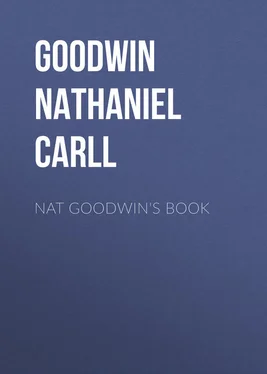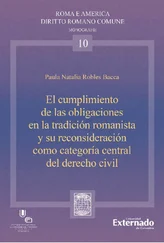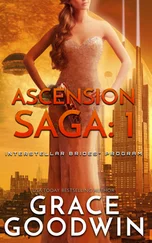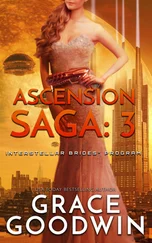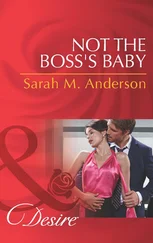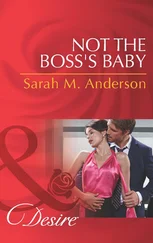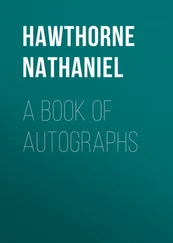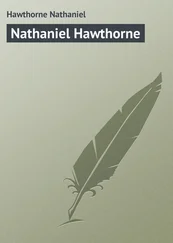Nathaniel Goodwin - Nat Goodwin's Book
Здесь есть возможность читать онлайн «Nathaniel Goodwin - Nat Goodwin's Book» — ознакомительный отрывок электронной книги совершенно бесплатно, а после прочтения отрывка купить полную версию. В некоторых случаях можно слушать аудио, скачать через торрент в формате fb2 и присутствует краткое содержание. Издательство: Иностранный паблик, Жанр: foreign_antique, foreign_prose, на английском языке. Описание произведения, (предисловие) а так же отзывы посетителей доступны на портале библиотеки ЛибКат.
- Название:Nat Goodwin's Book
- Автор:
- Издательство:Иностранный паблик
- Жанр:
- Год:неизвестен
- ISBN:нет данных
- Рейтинг книги:5 / 5. Голосов: 1
-
Избранное:Добавить в избранное
- Отзывы:
-
Ваша оценка:
- 100
- 1
- 2
- 3
- 4
- 5
Nat Goodwin's Book: краткое содержание, описание и аннотация
Предлагаем к чтению аннотацию, описание, краткое содержание или предисловие (зависит от того, что написал сам автор книги «Nat Goodwin's Book»). Если вы не нашли необходимую информацию о книге — напишите в комментариях, мы постараемся отыскать её.
Nat Goodwin's Book — читать онлайн ознакомительный отрывок
Ниже представлен текст книги, разбитый по страницам. Система сохранения места последней прочитанной страницы, позволяет с удобством читать онлайн бесплатно книгу «Nat Goodwin's Book», без необходимости каждый раз заново искать на чём Вы остановились. Поставьте закладку, и сможете в любой момент перейти на страницу, на которой закончили чтение.
Интервал:
Закладка:
"Did from the flames of Troy upon his shoulder the old Anchises bear" —
He realized that the audience was laughing at him and he continued,
"Did I, the tired Caesar, you blankety-blank, blankety-blank!", his added interpolation being really unfit for publication.
Fortunately the laughter drowned the words. Had the audience heard them the performance would have ended then and there. We all thought that it must have heard, that the end had come. I prayed fervently that it had, but no such luck! It gradually quieted down and the play proceeded. When my turn came to end the act some of my friends said I did very creditably. At all events I got through without a laugh. And that I considered a triumph. We often referred to it in after life and always with great pleasure.
Robson was a unique person, gifted with the most thorough sense of right and wrong of any man I ever knew. His word was a contract and with it went the liberality of a king. He absolutely refused to grow old and sought only the young. He tried to emulate the deeds of charity of the Good Samaritan and had a kind word for all humanity. He possessed the soul of a saint and the heart of a fawn. His motto was JUSTICE. He wrote the words and music of HONOR.
In a spirit of jest he once promised a coachman a gift of five thousand dollars if the coachman succeeded in winning the hand and heart of a certain lady. He gave him one dollar on account never dreaming that the man would woo and win successfully. Imagine his surprise when six years later the man turned up and informed him of the date of the wedding. I happened to be present at the time at his summer place at Cohasset, Mass. The coachman went his way and Rob told me of his promise. I said, "Surely, you are not going to make good a promise made in jest?" He answered, "I am," went inside the house and in a few minutes came back on the veranda with the cheque for four thousand, nine hundred and ninety-nine dollars in his hand. He called his daughter and sent her down the road with the cheque in quest of the young coachman, with instructions to present it to him as a wedding gift "from S. Robson, Esquire," ordered a brandy and soda from his servant and rudely left me with instructions to "Go home!" Knowing dear Rob's proclivities for B and S's, I loitered about for a few hours and then returned to the house, but Rob had disappeared.
His daughter and I finally located him, with a few convivial friends in the hotel bar at Hingham. He called us to one side and quietly asked his daughter if she had performed the duty as requested. She answered, "Yes, papa, I gave him the cheque." Rob asked, "How did he take it?" His daughter replied, "Papa, he cried!" "How long did he cry?" asked Rob. "About a minute," she replied. "That's nothing," said Rob, "when I signed it I cried an hour!"
I could fill pages with such deeds of his as this one and I knew him, man and boy, for thirty years. The world never knew a better man than Stuart Robson; a loving father, a dutiful husband, a great comedian, an honest actor and an upright American citizen. To quote from one of Boucicault's plays in which he appeared, "He had the soul of a Romeo and the face of a comic singer."
God bless you, Rob, wherever you and our dear friend, Bob Ingersoll, are! Move over, and leave a place for me! If it's hell, I'll invoke a blizzard; if Heaven, we shall need each other's companionship! We shall say that we were wrong down here and ask to be forgiven.
Shall we be?
I wonder!
Chapter IV
JOHN McCULLOUGH
At the end of the year 1882 I attracted the attention of the manager of the Dramatic Festival which was to be held at Cincinnati and was engaged to play the grave digger in "Hamlet" and Modus in "The Hunchback." Neither of these parts had ever been assumed by me prior to his engagement. It had always been my desire to appear in Shakespearean rôles and other legitimate characters.
The Dramatic Festival was a splendid success, artistically and financially. We began April 30, 1883, the first performance being "Julius Caesar." My associates were John McCullough, Lawrence Barrett, James E. Murdoch, Mary Anderson, Mlle. Rhea, Clara Morris and Kate Forsythe. The other plays given were "The Hunchback," "Much Ado About Nothing," "Othello," "Hamlet" and "Romeo and Juliet." The enterprise was managed by R. E. J. Miles and stage-managed by William H. Daly. The receipts for the week were in the neighborhood of a hundred thousand dollars. It was a happy time, marred only by our discovering that poor John McCullough was a doomed man, his mind showing a gradual decay. It was the beginning of the end, for in a few months the curtain rang down on dear John and he walked the stage no more.
A great, big-hearted, genial soul was lovable John McCullough! Everybody loved him and who could help it? Broad-minded and equally broad-shouldered, his companions ranged from prize-fighters to senators, wantons to duchesses. He was a splendid player and many suggestions have I received from him. He was a tragedian on the stage, a comedian off. I knew him for twenty years and in all that time, as intimate as we were, I always addressed him as "Mr." McCullough – and it annoyed him greatly.
One night at the old St. James (New York) bar I greeted him with the usual salutation. He replied, "Damn it, my name is John!" I answered, "I don't care whether it is or not, I can't say it" – and I never did. To me he was a Roman senator and oh, how simple, how kind! I was always awed when in his presence. When we met and he slapped me on the back by way of comradeship my spine would open and shut. Maybe it was the vehemence of the attack, but I always attributed it to my admiration of the man.
One noon I went into Delmonico's after a long siege of poker with the late Billy Scanlon, actor (and clever chap by the way), William Sinn, proprietor of the Park Theatre, Brooklyn, Billy Barry, Henry Watterson and John R. Fellows, District Attorney of New York City. I wanted a bracer badly, I can tell you, for we had participated in a very strenuous evening. As we entered, there was dear old McCullough having luncheon.
I stopped, transfixed. He saw me and beckoned me to a seat at the table. I was terribly self conscious. He said, "Son, have a drink." I replied, rather timidly, "No, thank you." (I was slowly passing away.) He continued, "Well, you do drink, don't you?" "Yes," I replied, "once in awhile." "I mean you get drunk!" he insisted. I replied in the affirmative. "Good for you! I wouldn't give a damn for a man who didn't, occasionally!" he commented. "Is that right?" I queried. "Certainly," he replied. "Well, then," and I yelled to the waiter, "Give me an absinthe frappé!" "That's right, my boy; and, waiter, make it two," he quietly remarked.
We sat there for some time and soon I forgot all about my losses, listening to his fascinating stories of Edwin Forrest and the palmy days.
He was a most entertaining man and my memory often returns to the many happy hours passed in the company of my good friend, "Mr." McCullough – "John" for short – and sweet – now.
Chapter V
SIR HENRY IRVING
After the Dramatic Festival my wife and I embarked for Europe. It was during this time that I made the acquaintance of Henry Irving who was then managing successfully the Lyceum Theatre in London. Irving apparently took quite a fancy to me. He showed me many attentions and I was the recipient of many hospitalities at his hands.
Irving was an extraordinary man in many ways and considering what nature had denied him his achievements were little short of marvelous. Possessed of a voice of but little power, utterly lacking in grace, even ungainly and awkward in action, he was possessed of that occult power that made all those infirmities subservient to his fine intellect.
Читать дальшеИнтервал:
Закладка:
Похожие книги на «Nat Goodwin's Book»
Представляем Вашему вниманию похожие книги на «Nat Goodwin's Book» списком для выбора. Мы отобрали схожую по названию и смыслу литературу в надежде предоставить читателям больше вариантов отыскать новые, интересные, ещё непрочитанные произведения.
Обсуждение, отзывы о книге «Nat Goodwin's Book» и просто собственные мнения читателей. Оставьте ваши комментарии, напишите, что Вы думаете о произведении, его смысле или главных героях. Укажите что конкретно понравилось, а что нет, и почему Вы так считаете.
